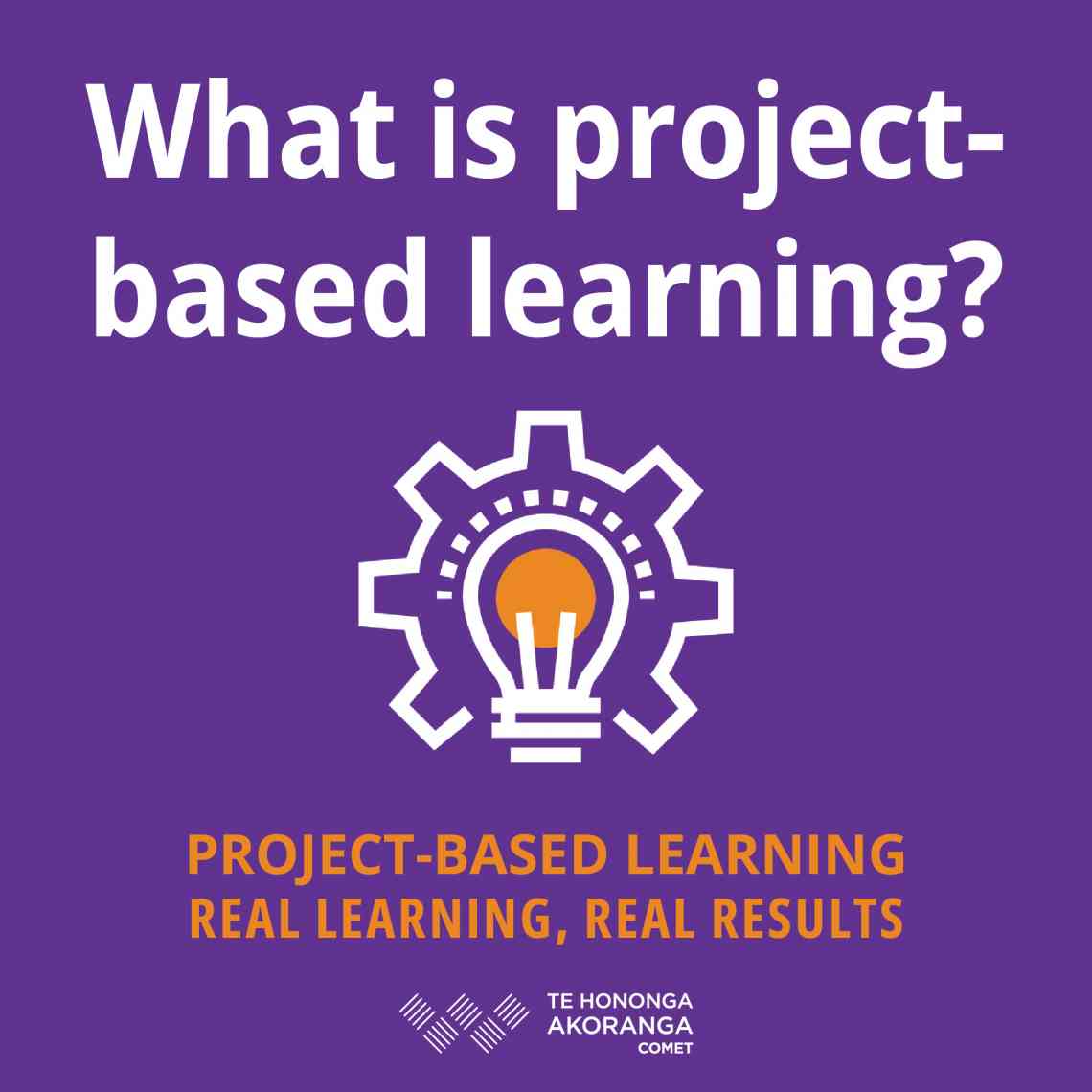What are project-based and inquiry-based learning?
Why now and how to explain them #
Katheren Leitner
Chief Executive — Te Hononga Akoranga COMET
In a climate where teachers in Aotearoa NZ face mounting pressure and public scrutiny, it might feel like now isn’t the time to take risks on different ways of teaching.
What if the answer to re-engaging learners and restoring purpose in the classroom isn’t to retreat to the old ways but to lean into practices that make learning more meaningful for everyone?
Project-Based Learning (PBL) and Inquiry-Based Learning (IBL) are two approaches grounded in real-world problem-solving, student voice and deep learning. They aren’t trends. They’re tools. And they might be exactly what’s needed right now.

For 10 years, COMET has delivered SouthSci / Curious Minds, through which 81% of previously uninterested students have become engaged and interested in science and maths.
What are project-based and inquiry-based learning?
- Project-Based Learning (PBL) is a teaching approach through which students gain knowledge and skills by working over an extended period to investigate and respond to a real-world problem, question or challenge. The project itself is the learning journey — not the end result.
- Inquiry-Based Learning (IBL) puts students’ questions at the heart of the learning process. It’s about encouraging curiosity, guiding exploration and helping students develop the skills to investigate and draw conclusions — not just memorise answers.
These approaches don’t replace the curriculum. They bring it to life.
Teachers know better than anyone that student engagement has taken a hit in recent years. Attendance is down. Behaviour challenges are up. Learners are asking: “Why are we doing this?”
PBL and IBL put that question back on students. Students quickly get to see how the learning is relevant and affects them.
What the research shows — international and local evidence
A 2017 meta-analysis (Condliffe et al.) found that students in PBL environments were significantly more engaged, motivated and self-directed than those in traditional classrooms. In 2021, Lucas Education Research showed Year 5 students taught through PBL outperformed peers in English, Arts and Science assessments.
Closer to home, a Massey University study found that cross-curricular PBL projects in NCEA settings improved motivation and academic performance — particularly when the work was relevant to learners' lives.
At Kuranui College, the “Base 6” PBL programme gave students voice and choice over their learning, resulting in measurable increases in engagement.
In early childhood, inquiry-based approaches are already embedded in Te Whāriki, where exploration and collaborative learning are foundational. A 2023 study across Aotearoa NZ found that tamariki involved in inquiry projects developed stronger self-management and collaboration skills.
In little time, students realise that the learning is different. For one, they are learning how to tackle real problems like climate change, poverty, digital safety or designing better public spaces. They are also required to think, collaborate, explore and problem-solve. This isn’t just schoolwork; it’s preparation for life.
How to explain it to parents
In a time when parents are understandably anxious about their children’s future, it’s important to be transparent and clear. They need to know that their children are still being taught the core skills: reading, writing, maths and science. Instead of rote (repetitive) learning, students learn through projects that mean something. That way, the learning sticks.
Change invites scrutiny
PBL and IBL are not silver bullets, but they are solid, research-backed practices that bring learning to life. In a time when education is being questioned, these methods provide real answers to the question learners keep asking: “Why does this matter?”
They allow teachers to teach with meaning. They allow students to learn with purpose. And they allow parents to see the kind of education that prepares young people — not just for tests but for life.